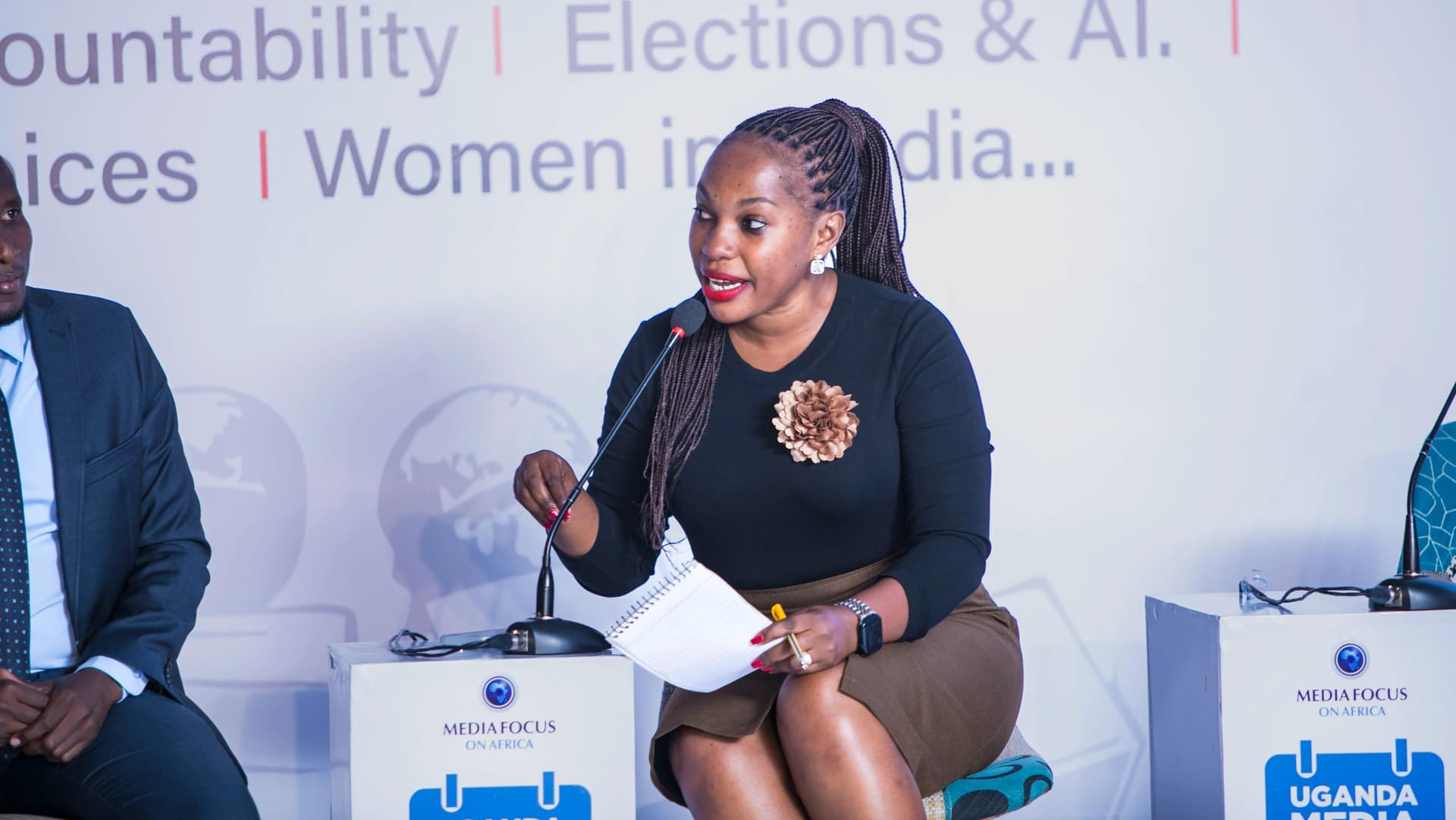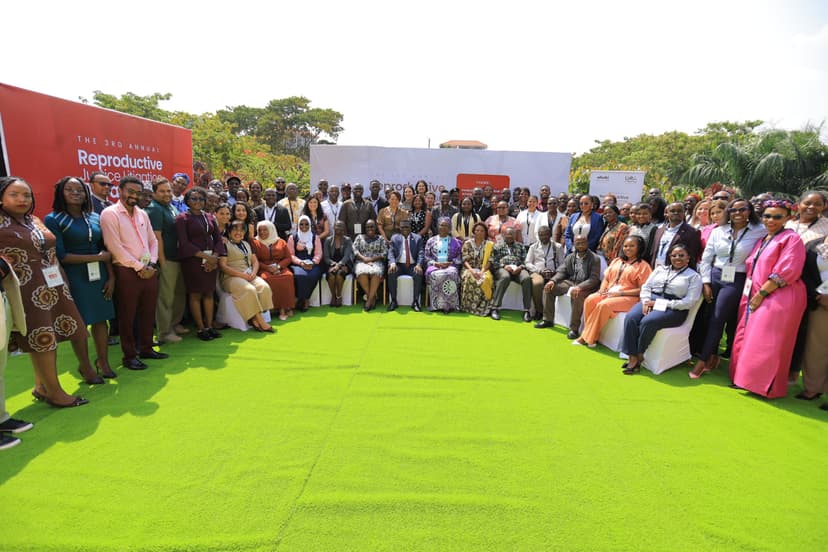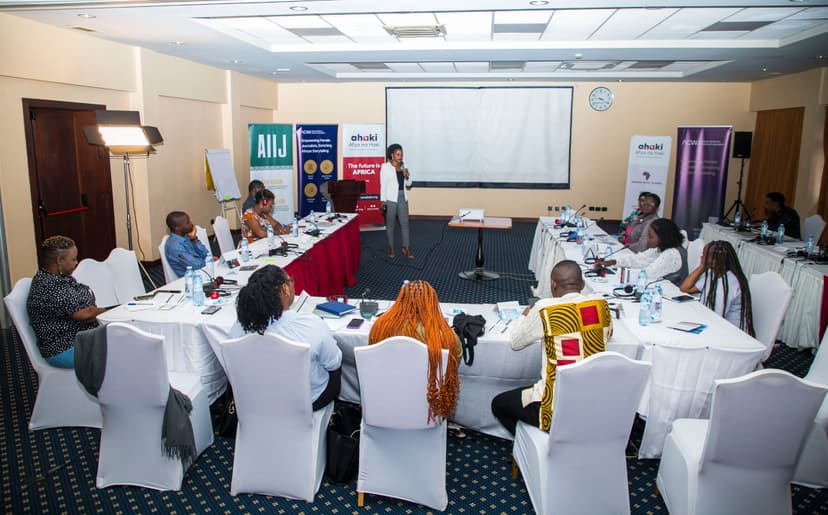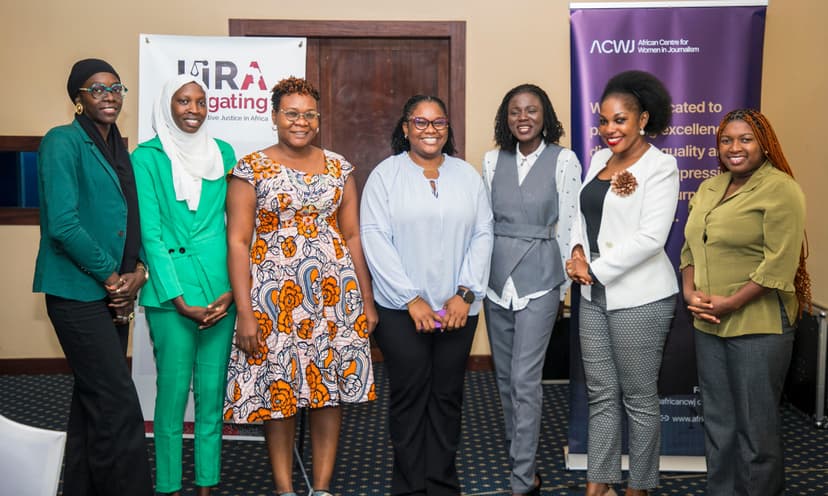Media Advocacy
Our advocacy promotes media freedom and pushes for safer working conditions for female journalists. We engage with newsrooms to adopt gender-sensitive reporting standards and challenge policies that restrict coverage of women's rights. Through strategic campaigns and policy dialogue, we work to build an enabling environment for impactful journalism.

Overview
The ACWJ media advocacy program works to create an environment where female journalists can operate freely, safely, and effectively. We advocate for gender-sensitive reporting standards within newsrooms and challenge policies that restrict coverage of women's rights, such as those impacting SRHR reporting.
We champion robust digital and physical safety protocols and provide policy advocacy on key issues affecting women in media. Our ultimate goal is to shape an African media landscape that actively champions women's rights, ensures their stories are told, and holds power accountable.
Our approach is hands-on and relevant to the challenges you face.
Strategic campaigns & policy dialogue
We develop and run strategic communication campaigns to highlight critical issues. We engage in policy analysis and dialogue with media houses, CSOs, and decision-makers to promote reforms that support female journalists and gender equality in the media.
Championing journalist safety & support
We advocate for safer working environments for female journalists, including the adoption of strong digital and physical safety measures. We also support journalists who face threats or harassment in the line of their work.
Building coalitions for collective impact
We build strong coalitions with media organizations, civil society organizations (CSOs), and other stakeholders who are committed to media freedom and gender equality. Together, we amplify our voices and efforts for systemic change
Promoting media literacy
We develop and support media literacy initiatives. These initiatives help the public understand the importance of women's voices in media and critically engage with the information they consume, fostering demand for inclusive journalism.
Resources and insights
The Uganda Human Rights Commission's 27th Annual Report offers a comprehensive review of the state of human rights in the nation. Of critical importance to ACWJ's mission, the report details the specific, gender-based threats and violence faced by Women Human Rights Defenders (WHRDs).
Published: May 23, 2025
source: Uganda Human Rights Commission (UHRC)
This YALI Network guide introduces core ethical principles for journalism—truth, minimizing harm, independence, and accountability providing a foundational resource for young and emerging African journalists.
Published: May 1, 2015
source: YALI Network (Young African Leaders Initiative)
This April 2024 academic article explores the South African Press Code through the lens of African moral theory, highlighting Afro-centric ethical values such as communal harmony, empathy, and inclusive narratives in journalism.
Published: April 8, 2024
source: Taylor & Francis Online (Journal: Communicatio) / Authors of the article


